Daily Current Affairs and GK | 9 and 10 August 2020

Main Headlines:
- 1. Agriculture Infrastructure Fund launched by PM Narendra Modi.
- 2. Mahinda Rajapaksa takes oath as Prime Minister of Sri Lanka.
- 3. A portal on Human Elephant Conflict to be launched by Environment Minister.
- 4. World Tribal Day or International Day of the World’s Indigenous Peoples: 9 August.
- 5. eSanjeevani OPD provided more than 1.5 lakh online consultations.
- 6. GCC writes for extension of UN arms sanctions on Iran.
- 7. Defence Ministry to ban import of 101 defence items to promote Atmanirbhar Bharat.
- 8. Delhi State Legal Services Authority organized online Lok Adalat for the first time.
- 9. Confederation of All India Traders launched China Quit India campaign.
- 10. Envistats India 2020 report released by National Statistical Office.
- 11. Mauritius declared an environmental emergency due to an oil spill from a Japanese ship stranded in the Indian Ocean.
- 12. Researchers at the Indian National Center for Ocean Information Services, Hyderabad found way to improve waves forecast.
- 13. 140 rare species of butterflies, including 77 new species, were discovered in Matheran.
Happy February get 35% Off
Use Coupon code FEB26
1. Agriculture Infrastructure Fund launched by PM Narendra Modi.
- ₹1 lakh crore Agriculture Infrastructure Fund has been launched by PM Modi by giving ₹1,000 crore to 2,200 farmer societies.
- ₹17,000 crore has also been released to 8.5 crore farmers as sixth Instalment of PM-Kisan scheme.
- Union Cabinet has approved Agriculture Infrastructure Fund last month. It aims to support farmers, Primary Agriculture Credit Societies (PACS), farmer producer organisations (FPOs) and agri-entrepreneur in developing community farming assets and post-harvest infrastructure.
- Agriculture Infrastructure Fund will be available from FY2020 to FY2029 (10 years). Under this fund, banks and financial institutions will give ₹1 lakh crore with 3% per annum interest subvention and credit guarantee coverage up to ₹2 crore.
- PM-Kisan scheme was launched in February 2019 and since than total ₹90,000 crore has been disbursed under the scheme.
2. Mahinda Rajapaksa takes oath as Prime Minister of Sri Lanka.
- Mahinda Rajapaksa has taken oath as PM of Sri Lanka for the fourth time.
- His younger brother and President Gotabaya Rajapaksa administered him oath.
- The oath taking ceremony was held at Kelaniya Mahaviharaya near Colombo.
- Mahinda Rajapaksa was the President of Sri Lanka from 2006 to 2015.
- PM Mahinda Rajapaksa’s Sri Lanka People’s party (SLPP) has won general elections by two-thirds majority. The elections were held on 05 August 2020.
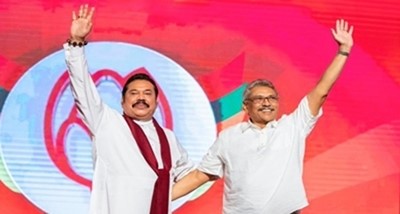
(Source: News on AIR)
3. A portal on Human Elephant Conflict to be launched by Environment Minister.
- A portal on Human Elephant Conflict will be launched by Minister for Environment and Forest Prakash Javadekar.
- The portal will be launched on eve of World Elephant Day, 2020, which is celebrated every year on August 12.
- World Elephant Day was launched in 2012 to attract attention to plight of Asian and African elephants.
- Asian and African elephants face threats such as poaching, habitat loss, human-elephant conflict and mistreatment in captivity.
- In India, Project Elephant was launched in 1992 to provide financial and technical support to various States for the conservation of elephants.
4. World Tribal Day or International Day of the World’s Indigenous Peoples: 9 August.
- World Tribal Day (International Day of the World’s Indigenous Peoples) is celebrated annually on August 9 since 1994.
- It aims to promote and safeguard the rights of world’s indigenous population.
- In 1982, first meeting of the United Nations Working Group on Indigenous Populations was held and World Tribal Day recognizes it.
- World Tribal day 2020 celebrations focus on preservation and documentation of tribal languages.
- Various linguistics departments in South are making efforts to collect, preserve and document the languages of 500 tribes identified by anthropologists in Tamilnadu.
- Of these tribes, six can be seen in Niligris district of Western Ghats. They are Todas, Paniyars, Kattunaickars, Irulas, Kurumbas and Kothars.
- As per 2011 Census, in India, 8.6% of the total population are tribal people.
- More than half of the Scheduled Tribe population is concentrated in Central India, i.e.,
- Madhya Pradesh (14.69%),
- Chhattisgarh (7.5%),
- Jharkhand (8.29%),
- Andhra Pradesh (5.7%),
- Maharashtra (10.08%),
- Orissa (9.2%),
- Gujarat (8.55%) and
- Rajasthan (8.86%)
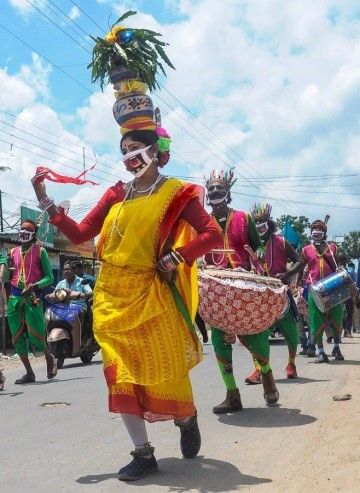
(Source: News on AIR)
5. eSanjeevani OPD provided more than 1.5 lakh online consultations.
- eSanjeevani OPD, a telemedicine service of Health Ministry has provided more than 1.5 lakh online consultations.
- The service has been launched by 23 states and it now covers 75% of population.
- Through eSanjeevani platform, two types of tele-consultations are possible. They are doctor-to-doctor (eSanjeevani) and patient-to-doctor (eSanjeevani OPD).
- Government is implementing eSanjeevani under Ayushman Bharat Health and Wellness Centre (AB-HWCs) programme.
- Government has launched eSanjeevani on 16 June 2009. Government has plans to implement teleconsultation in all 150,000 Health and wellness centres by December 2022.
- Ayushman Bharat Health and Wellness Centre (AB-HWCs) programme is one pillar of Ayushman Bharat programme of 2018. Second pillar of Ayushman Bharat programme is Pradhan Mantri Jan Arogya Yojna (PMJAY). AB-HWC is for providing comprehensive primary healthcare services for all.
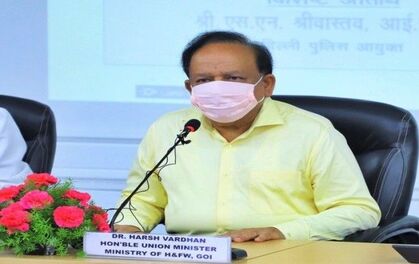
(Source: News on AIR)
6. GCC writes for extension of UN arms sanctions on Iran.
- Gulf Cooperation Council has written to UN Security Council to support extension of arms sanction on Iran.
- The sanctions prevent Iran from purchasing foreign-made weapons like fighter jets, tanks and warships.
- The sanctions on Iran will expire after two months and they were imposed in 2010. UN has agreed to terminate arm sanctions in October after Iran’s 2015 nuclear deal.
- Iran’s Nuclear Deal:
- Iran’s nuclear deal, also known as Joint Comprehensive Plan of Action (JCPOA), was signed in July 2015.
- The deal was signed between Iran and P5+1+ EU i.e. five permanent members of UNSC viz. China, USA, Britain, France, Russia + Germany + European Union.
- Recently, USA has withdrawn from the treaty.
- Gulf Cooperation Council:
- It was formed in 1981.
- It has six members. These are Bahrain, Kuwait, Oman, Qatar, Saudi Arabia and the United Arab Emirates.
- Its headquarters are located in Riyadh, Saudi Arabia.
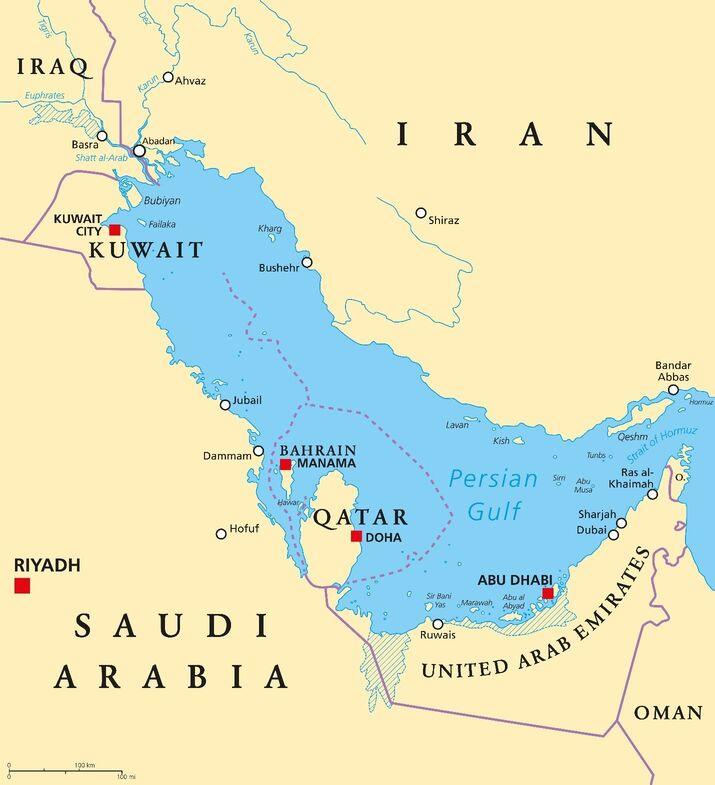
7. Defence Ministry to ban import of 101 defence items to promote Atmanirbhar Bharat.
- Defence Ministry will gradually ban import of 101 defence items to increase indigenization of defence production.
- The list includes artillery guns, missile destroyers, ship-borne cruise missiles, light combat aircraft, light transport aircraft, long-range land attack cruise missiles, communication satellites, etc.
- As per the SIPRI report released in April, India was the third-biggest military spender after the US and China.
- India is also the second largest importer of arms in the world.
- Government has also decided to disallow participation of foreign companies in tendering process of any government contract over Rs. 200 crore.
- Government will buy Rs. 52,000 crore worth products from Indian companies in 2020.
- The ban will be implemented between 2020 and 2024.
- Earlier, Ministry of Defence has released draft Defence Production & Export Promotion Policy (DPEPP) 2020.
8. Delhi State Legal Services Authority organized online Lok Adalat for the first time.
- Bringing constructive solutions to the current ongoing covid-19 pandemic, the Delhi State Legal Services Authority (DSLSA) recently organized an online Lok Adalat for the first time in Delhi.
- This step has been taken keeping in mind the need to learn and adopt new methods for the betterment of society.
- The Delhi State Legal Services Authority (DSLSA) functions under the National Legal Services Authority.
- Lok Adalat:
- It is one of the alternative dispute resolution mechanisms in India.
- It has been given statutory status under the Legal Services Authorities Act, 1987.
- National Legal Services Authority (NALSA):
- This institution was formed on 9 November 1995 under the Legal Services Authorities Act 1987.
- It aims to provide free legal services to the weaker sections of the society and organize Lok Adalats for speedy resolution of cases.
- Supreme Court Judge NV Ramana is the acting chairman of NALSA.
9. Confederation of All India Traders launched China Quit India campaign.
- Recently the Confederation of All India Traders has launched the China Quit India campaign.
- Under this, there has been a demand to ban China's growing trade in India.
- This campaign of CAIT is an extension of their recent demand for boycott of Chinese goods, with demonstrations at around 600 venues in different parts of the country.
- Along with this, CAIT urged the government to pay attention to the following points-
- Prohibiting Chinese imports.
- Investing in Indian companies.
- Promoting Indian start-ups and digital apps.
- Investigation of China's activities in India.
- This will make all-round siege of China possible.
- Confederation of All India Traders:
- It is a national level non-governmental apex body of India's business community.
- Its headquarters is located in New Delhi.
10. Envistats India 2020 report released by National Statistical Office.
- Recently, Envistats India Report 2020 was released by the National Statistical Office, which functions under the Ministry of Statistics and Program Implementation.
- State-wise environment related data is shown in it.
- Key points of the report-
- The average number of days of heat wave increased by 82.6% in 2019 and this number has increased to 157 days.
- Rajasthan recorded the highest number of 20 day heat wave.
- After this, 13 days of heat wave were recorded in Uttar Pradesh and Uttarakhand.
- An increase in the number of average cold wave days was also recorded, according to the data, 45 cold wave days were recorded in 2018 while there were 29 days in 2017 i.e. an increase of 55.2 percent.
- Also, there were 3,740 deaths due to acute respiratory infections (ARI) in 2018, the highest in six years.
- The maximum deaths due to acute respiratory infections occurred in West Bengal (732) Uttar Pradesh (699) Andhra Pradesh (587) Delhi (492).
- Also, the maximum increase in particulate matter below 10 micron is found in Delhi followed by Ahmedabad and Mumbai.
- Tube wells and hand pumps are the primary source of drinking water in rural India. Their share is 53.8%.
- Piped water, public taps, stand pipes are the primary sources of water in urban areas.
- In urban areas of Daman and Diu most people have chosen bottled water as a source of drinking water.
- Delhi has the highest number of registered motor vehicles in the country, followed by Bengaluru.
- Chhattisgarh and Madhya Pradesh have the largest slum population after Andhra Pradesh.
- Deaths due to heat wave also recorded a sharp jump in 2019, but this is slightly lower than 375 from 2017.
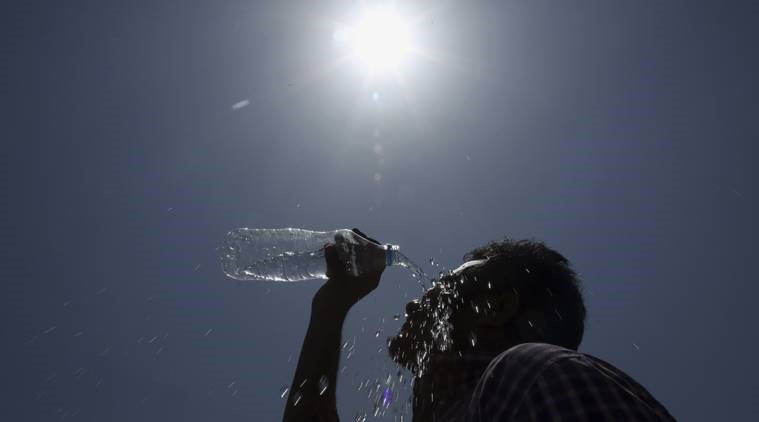
(Source: Indian Express)
11. Mauritius declared an environmental emergency due to an oil spill from a Japanese ship stranded in the Indian Ocean.
- Mauritius declared an environmental emergency recently due to an oil spill from a Japanese ship stranded in the Indian Ocean.
- The ship, named MK Wakashio, is owned by Japan but registered in Panama.
- It crashed into a cliff on July 25 while travelling from China to Brazil, although its crew was evacuated.
- Later due to bad weather and frequent strong ocean waves, the ship began to leak fuel, with a capacity of 4,000 tons.
- This environmental crisis may threaten not only aquatic life but also the economic condition of the people dependent on it.
- Mauritius Prime Minister Pravind Jugnauth has appealed to France for help.
- The French island, Reunion island, is also located near Mauritius in the Indian Ocean.
- Mauritius:
- It is an island nation located in the Indian Ocean.
- It is known for its beaches, lagoon and reef.
- Capital: Port Louis
- Currency: Mauritius Rupee
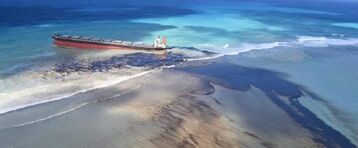
(Source: Down to Earth)
12. Researchers at the Indian National Center for Ocean Information Services, Hyderabad found way to improve waves forecast.
- Recently researchers from the Indian National Center for Ocean Information Services (INCOIS), Hyderabad have found the way to better forecast waves.
- According to them, better forecast waves can be made based on boreal summer intra seasonal oscillations (BSISO).
- Boreal summer intra seasonal oscillations (BSISO):
- These induce high wave activity in the north Indian Ocean and Arabian Sea.
- During the monsoon June to September, there are warm convection currents running from the Indian Ocean to the western Pacific Ocean in about 10–50 days. They describe the active and break periods of the monsoon.
- It will also help improve wave forecasting along the coasts of India and reduce the adverse effects of high waves, coastal flooding, erosion, etc.
- Also, sea-navigation routes can also be planned better.
- This discovery has great significance in developing seasonal and climate forecasting service for waves and coastal erosion for India.
- Also, work on this will be started soon under the Deep Ocean Mission of the Ministry of Earth Sciences.
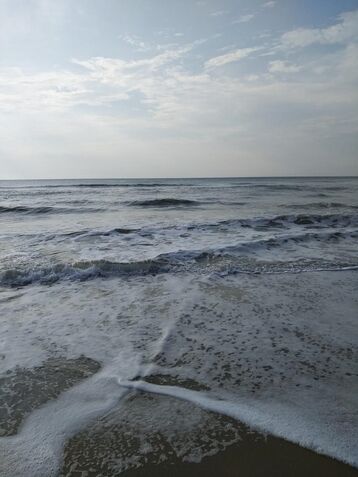
(Source: Down to Earth)
13. 140 rare species of butterflies, including 77 new species, were discovered in Matheran.
- Recently after a long gap of 125 years, 140 rare species of butterflies have been discovered, including 77 new species at Matheran near Mumbai in Maharashtra.
- Earlier in 1894, 78 species were discovered by a researcher, then these butterflies were codified in this eco-sensitive area.
- This discovery has been made by scientists of Bombay Natural History Society and Somaiya Vidya Vihar University.
- It has also been published in a research paper in the journal Biodiversity Data.
- Bombay Natural History Society (BNHS):
- It is one of the largest non-governmental organizations in India engaged in conservation and biodiversity research.
- It publishes the Journal of Bombay Natural History Society.
- It was established on 15 September 1883.
- Its headquarters are located in Mumbai.
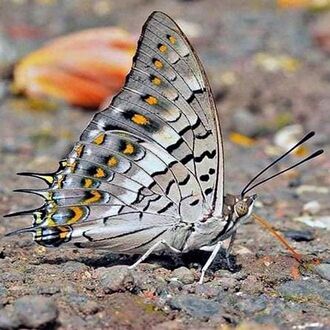
(Source: The Hindu)





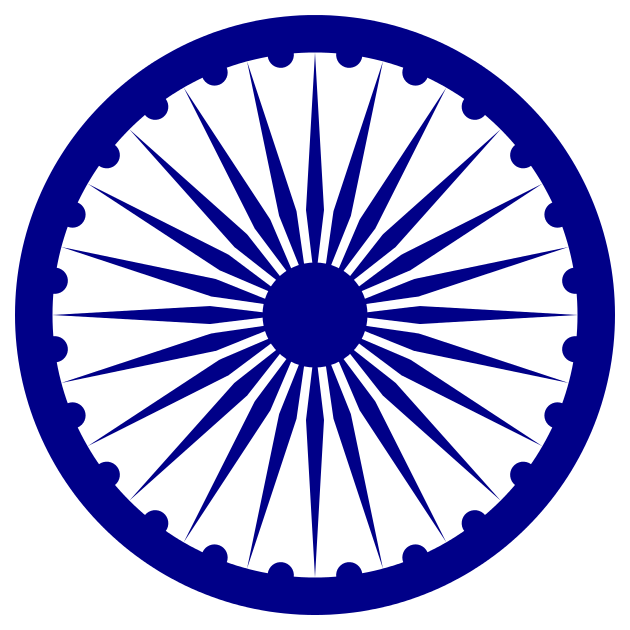
 8 August 2020 Current Affairs
8 August 2020 Current Affairs 








Comments